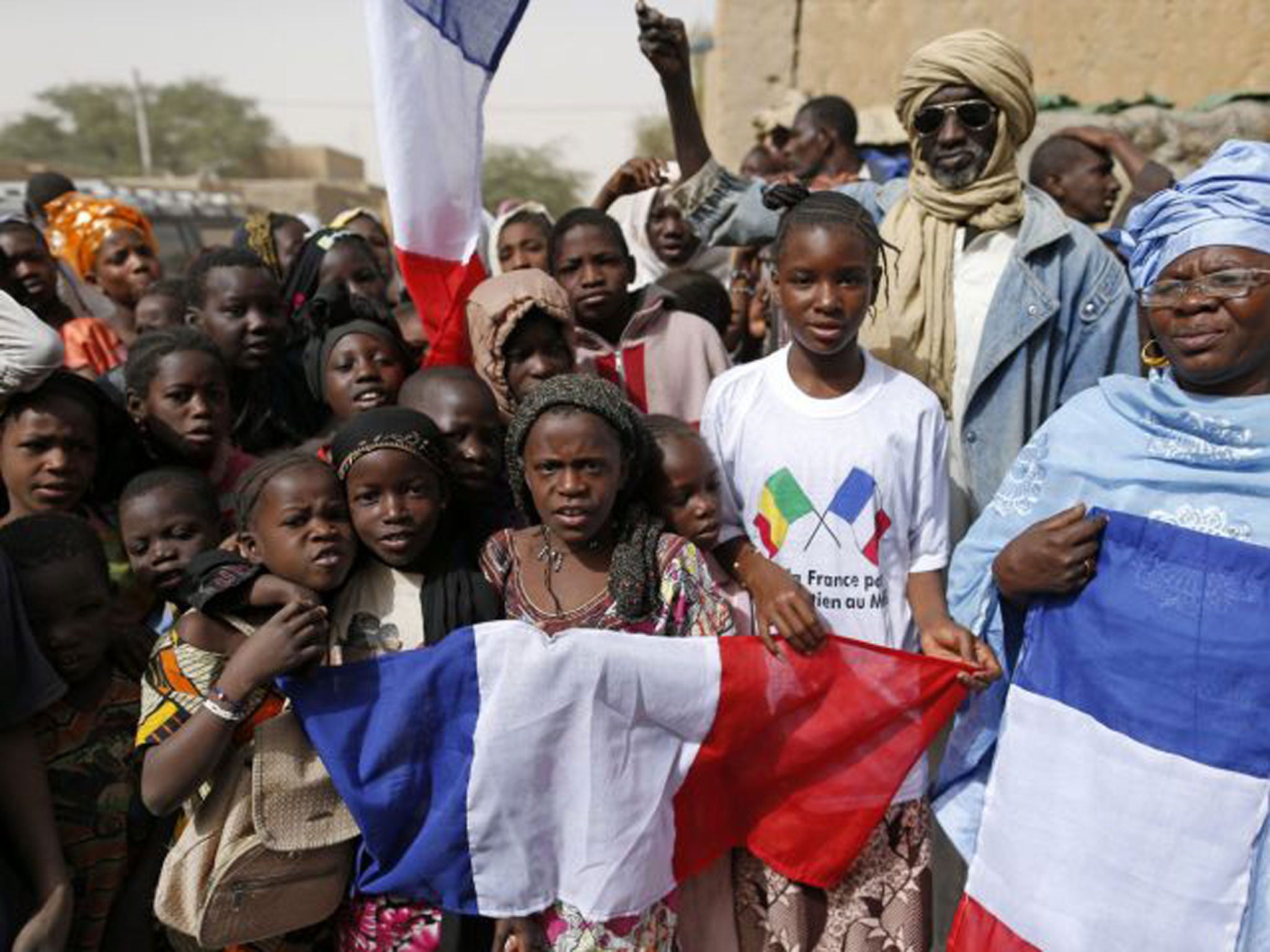Hunt on for Malian rebels who fled to fight another day
As people celebrate in liberated Timbuktu, roadside bomb kills five Malian troops

Your support helps us to tell the story
From reproductive rights to climate change to Big Tech, The Independent is on the ground when the story is developing. Whether it's investigating the financials of Elon Musk's pro-Trump PAC or producing our latest documentary, 'The A Word', which shines a light on the American women fighting for reproductive rights, we know how important it is to parse out the facts from the messaging.
At such a critical moment in US history, we need reporters on the ground. Your donation allows us to keep sending journalists to speak to both sides of the story.
The Independent is trusted by Americans across the entire political spectrum. And unlike many other quality news outlets, we choose not to lock Americans out of our reporting and analysis with paywalls. We believe quality journalism should be available to everyone, paid for by those who can afford it.
Your support makes all the difference.The last time Commander Adama was seen in Timbuktu was when he gathered his fighters on the bank of the river and declared the struggle was far from over: they were going to prepare for the coming battles of the jihad.
With that, the man who had led the Islamists into Konna, threatening the capital Bamako and triggering French intervention, disappeared into the northern vastness followed by dozens of gun-mounted trucks bristling with men alive to fight another day.
As celebrations continue after the liberation of Timbuktu and French President François Hollande prepares to fly into Mali, French troops with a core of special forces are hunting Adama and his fellow leaders in the deserts and mountains of Mali.
The flight of Adama and other key commanders -- along with the discovery of roadside bombs – is fuelling fears the swift French and Malian advance could be followed by a punishing guerrilla insurgency. “The terrorists fled from the towns but we know that many of them are hiding and waiting for opportunities,” said Major Suleiman Maiga, an infantry officer in the Malian army. “We have been shown [surveillance] photographs by the French locating where they are and we are moving on them.”
After the Islamists seized Timbuktu, Adama took over the post of the head of Islamist police. He was severe in his application of sharia, extending the range of “crimes” to include failure to wear trousers cut off at the shin in prescribed Salafist manner.
“Everyone was extremely frightened of him. I did not see him hit anyone, but he certainly ordered beatings,” said Idris Cisse, who worked at the office of the governor.
In Konna, he dispersed his fighters among the residents, one of the reasons French air strikes claimed the lives of a dozen people, including women and children. He also ordered, it is claimed, the shooting of two hippos which were then eaten by his foreign fighters.
That a man such as Adama remains free and armed, Major Maiga acknowledged, pointed towards a long and difficult journey to peace in Mali.
The largest concentration of mountains where he could have fled is the Adrar des Ifoghas range north of Kidal. French troops have seized Kidal airport but appear to be waiting for a political solution with non-religious, separatist Tuareg groups which retain control of the town. They have warned of a “bloodbath” if Malian troops are allowed to enter the town.
The Adrar des Ifoghas range already has a network of caves, tunnels and defensible firing points used both by smugglers and Islamists affiliated to al-Qa’ida. There were unconfirmed reports that the Islamist leader Mokhtar Belmokhtar, accused of ordering the attack on the Algerian gas complex, had been spotted there.
The French Defence Minister, Jean-Yves Le Drian, has warned that the retreat to the Adrar des Ifoghas is “just a tactical withdrawal which must not dupe us”.
There have also been reports of jihadist groups moving further south, one of them led by Alou Toure, the notorious head of Islamist police in Gao. At the same time there was an ominous development in the campaign with five Malian soldiers killed and four more severely injured when their truck hit a mine on a supposedly cleared road between Gao and Gossi.
Until now the French have not had to face roadside bombs as a significant threat, something they have become painfully accustomed to in Afghanistan. In the last two days, however, there had been a rising number of operations to retrieve caches of explosives the Islamists are believed to have secreted for the next phase of their campaign.
In the main towns, however, there is jubilation, and President Hollande will probably be greeted as a saviour in when he arrives in Bamako today, three weeks after he sent in the French military to prevent the country from falling to Islamist rebels.
Several problems face Mr Hollande, however, when he meets the interim Malian President, Dioncounda Traoré today. Human rights groups produced fresh evidence yesterday of civilian casualties in airstrikes and reprisals by Malian soldiers against Tuareg and Arab citizens of northern Mali.
Join our commenting forum
Join thought-provoking conversations, follow other Independent readers and see their replies
Comments